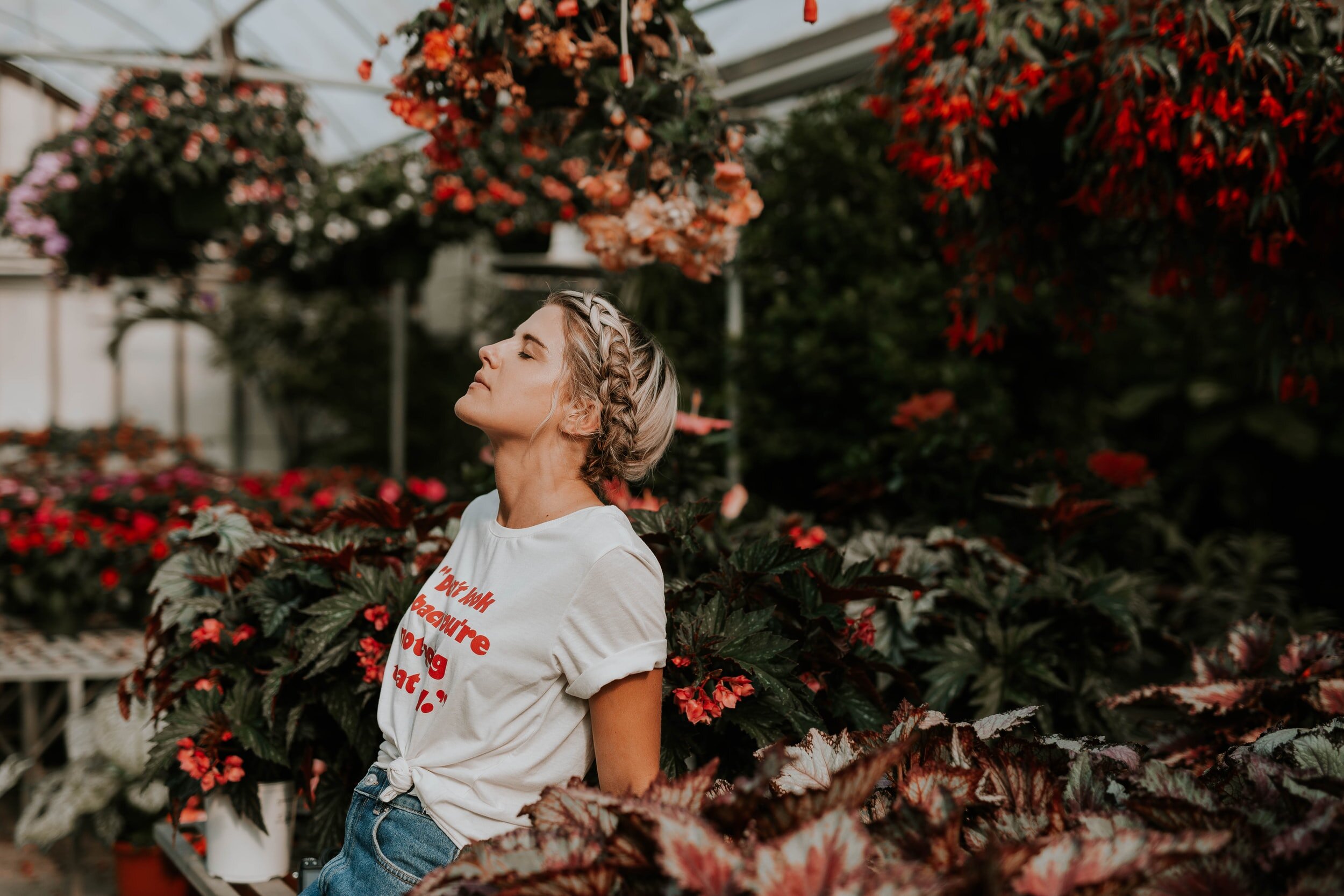What is Seasonal Affective Disorder and How to Manage it
Do you suffer from depression? Have you been having a harder time getting out of bed lately? Do you feel worse than usual and more drained in the cold Winter months? Have you been sleeping more, but not feeling more energized? Have you needed more coffee to get by, but then feel jittery and uncomfortable in your chest?
Do you struggle with worse anxiety during winter? Do your thoughts repeat in cycles? Do you feel on edge most days and unable to relax? Have you been feeling more hopeless with the days being darker and having less daylight?
If you any of these statements sound like you, you may be experiencing Seasonal Affective Disorder (SAD).
What is Seasonal Affective Disorder?
This is a normal response to colder, shorter days, and less time in the sunshine. The winter months can feel long. We get less sunlight each day; because of bad weather, we can’t be outside as much as we can in the other 3 seasons. Winter season can be stressful, even if you had a good holiday season. If you have experienced Anxiety or Depression throughout your life, it is likely to get worse in the winter months, but there are some things you can do to help manage this effect.
Often times the first part of the Season can be a good distraction. We have holidays like Halloween, Thanksgiving, Hanukah, Christmas, and Kwanzaa, and New Years to enjoy. These give a sense of excitement and magic usually, but the last year has complicated these too. In past years the holidays helped hold off SAD for many people, giving them something to look forward to. This past year SAD set in much earlier. People who have not experienced this challenge before are absolutely feeling it this year, due to the impact of the Pandemic. People had already been home, and not able to enjoy their lives the way they have been able to in the past, way before bad weather hit. Then people weren’t able to enjoy the holidays like they have in years past. We didn’t get to see people we wanted. We had to limit time and space with others. We lost loved ones and received grief in their place. It’s been incredibly challenging for many. It’s okay to be struggling. You are not alone.
What can you do to improve anxiety and depression in the winter?
Sun Gazing: This may sound a little weird, but bear with me…Part of the reason anxiety and depression increase at this time is due to a lack of Vitamin D. We’re not getting outside in the sunshine enough, and the days have less sunlight, which means our skin is not able to soak in enough Vitamin D. This is a crucial vitamin for our physical and mental health. When this vitamin drops, we feel the effects in increased exhaustion, inability to focus and concentrate, and feeling more irritable and on edge. Sun Gazing is a great way to get that Vitamin D! Stand or sit in the sun, or indoors in front of a window that gets full sun. Close your eyes or wear sun glasses, and sit there for about 15-20 minutes. This can become your meditation time. You can also listen to music or a podcast as you do this. You can look down and be on your phone. It doesn’t matter if your eyes are open or closed, just sit in front of the sun. Earlier in the day can be helpful, since the sun is stronger then. See what you notice when doing this. Of course, wear proper sunscreen and practice skin care that feels right for you.
Vitamin D: As I mentioned above, Vitamin D is a crucial vitamin. We need it for every function in our body. It’s also very helpful for our immune system. If you suffer from SAD, taking a Vitamin D supplement can help significantly. Many people boarder on low Vitamin D, especially women. Talk to your healthcare provider about adding this to your day. This can help supplement what you are not getting naturally from the Sun. Other supplements that can be helpful are Magnesium Glycinate, B-Complex, and a probiotic. Gut health is very important to mental health. All of these supplements tend to be low for the average American. Healthy levels of these are crucial to an effective and well-functioning body and mind. Again, check with your Primary Care Provider about where your nutrient levels are and whether you would benefit from adding these.
Physical activity: People have already been getting less physical activity the past year with the Pandemic. Winter season is naturally a slower time physically, and that’s healthy and normal, but since we have all been home significantly more it is important to still stay active, even if that means working out indoors. When we move our bodies, we are able to move through our emotions. Workouts don’t have to be strenuous, even stretching, light yoga, and dancing can help improve SAD. Staying active helps our bodies work through and process what it needs to physically AND emotionally. Yoga with Adrienne on youtube is a great free resource for yoga, but there are many on there. Youtube has many free workout videos if you don’t want to pay for a membership somewhere, though it can be helpful to workout with an experienced teacher, especially if you are new to certain exercise.
What are other things that improve mental health and Seasonal Affective Disorder?
Get plants: Plants bring the outdoors in. Having live plants in your home has numerous health benefits. It can be good for mental health to have something to take care of and tend to. Plants are perfect for this because they aren’t too much responsibility, like a pet or child can be. Nature and green spaces are impactful on our mental state. Being in these environments helps us feel calmer and more relaxed. There are many different varieties and species of plants. Find some that may work for you.
Set manageable goals: Focus on things you can do. Focus on small wins. When you’re having a hard day, and anxiety and depression are high, just do what you can. Meet yourself where you are each day. Some days you might feel 30%, while other days in your life you have felt 110%. If you are like me and create to-do lists, let your lists be for the whole week. Don’t feel like you have to get everything done in one day. Do things as you feel like doing them. Pressure only makes us feel more stressed and squashes our brain’s ability to be creative.
Plan things to look forward to: Plan future trips, talk to friends about future events you want to do with them, plan concerts you want to attend. Think about your ideal vacation and everything you want to do when you go. You don’t even have to buy tickets, just focus on these things. Having something to look forward to is one of the tenants of happiness. In winter months, remember the grey days are temporary. We’re already moving to longer days with more sunlight. We’re on our way to spring and summer. There are many changes we’re experiencing, so focus on positive things you want to experience as we enter this new year with all its possibilities!
I hope this post was helpful for you today. Remember, anxiety and depression are normal. There is nothing wrong with you for experiencing either of these, especially this past year, with the impact of the Pandemic on everyday life. Be gentle and easy on yourself as you manage this time. We all have natural seasons, just as the Earth does. Notice and learn about your personal seasons. It then becomes easier to ride the current of them, without getting caught in the waves.
To learn more about exploring your seasonal cycles with support, click here today to apply to Private sessions with me.
Sarah Seraphina is a Spiritual Activator and Liberation Guide. She is the owner of Nurtured Essence, a healing space, aimed at helping women overcome their past patterns and fears, so they may thrive and live with more power, purpose, ease, and joy. She specializes in working with healers, recovering empaths and “Damsels in Distress”, highly-sensitive women, lightworkers, and women with a sacred mission.



